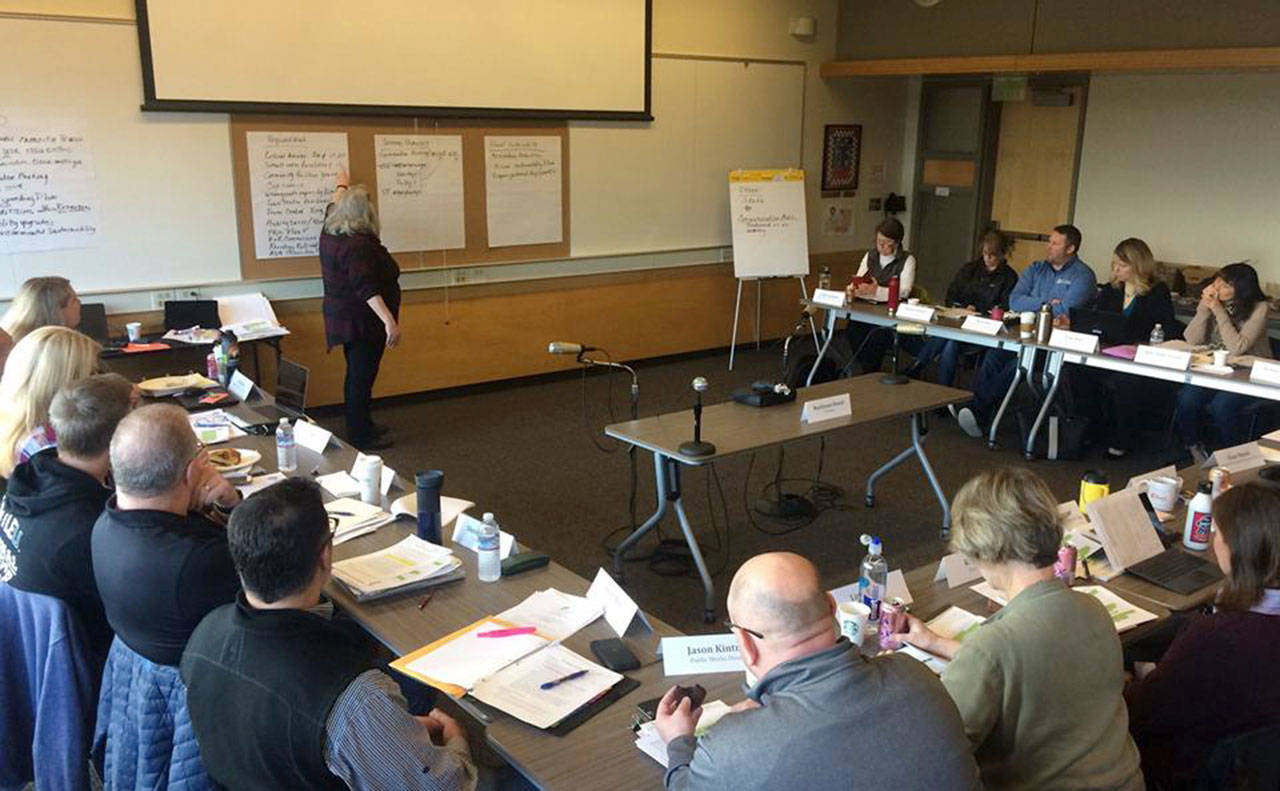The Mercer Island City Council held its annual retreat Feb. 1-2, discussing the 2019-2020 goals and work plan development as well as how to plan “beyond the biennium.”
In 2019, the city will have to plot out a path forward in the wake of the failure of Proposition 1, which voters rejected last November and which would have raised property taxes enough to maintain services at 2018 levels. The city has already made or proposed cuts, including to the Community and Event Center hours and events like Summer Celebration.
On Saturday morning, the council reviewed its 2018 accomplishments and identified high priority items for the next two years. With a facilitator and staff, they also reviewed the 2016 and 2018 community survey results and the first draft of the new budget cuts and revenue enhancements that will help the city offset its deficit spending.
“I am concerned about sustaining such a demanding workload, especially given diminishing resources, the increasing complexity of projects, and needing some general flexibility for unplanned/unforeseen situations. When (the) council develops its goals and work plan, I request (the) council’s assistance in identifying only high priority items that are critical for 2019-2020,” city manager Julie Underwood wrote in a council memo.
City staff proposed an additional $1.28 million in spending reductions, including many programs and employees in the Parks and Recreation and Youth and Family Services departments, but they did ask the council if it wanted to restore the deputy fire chief position, which was cut in the 2019-2020 adopted budget. Public safety is often identified as the city’s number-one priority.
The budget cuts are the first item on the 2019-2020 work plan. Phase one was announced on Dec. 18, 2018 and implemented on Jan. 1, 2019. Phase two will be implemented over the course of 2019.
Other projects include commuter parking at the Tully’s and Freshy’s sites, Town Center and other private developments, the Aubrey Davis Park master plan, the Parks, Recreation and Open Space (PROS) Plan, the King County sewer project, the Recology contract rollout, an ADA transition plan, the proposed “community facilities” zoning, and more.
Many of these are items that were initiated in 2018 or before, including the fiscal sustainability plan and priorities for the Sound Transit settlement agreement funds.
The fiscal sustainability plan is scheduled to be presented to the council on April 16, 2019, and finalized by April 30. Implementation is set to be discussed at the council’s “mini” planning session on June 22.
Revenue options, including increasing the annual business license fee from $30 to $50, raising the B&O tax rate from 0.10 percent to 0.15 percent and increasing the utility tax rate, may be discussed. The city might also increase community‐based counseling fees in 2020 and institute school counseling fees.
The budget shortfalls may put the city in a tight spot with Sound Transit. The $10 million settlement agreement was approved by council in October 2017, and the city has eight years to spend the funds and receive reimbursement, with a final reimbursement date of Dec. 31, 2025.
Now, 15 months into the agreement, approximately $100,000 has been spent and reimbursed for work related to first/last mile solutions pilot projects and traffic/safety mitigation planning work.
For future projects funded by the settlement, city staff proposed a focus on those that mitigate the loss of access from the closure of the I-90 center roadway, improve access to transit and are supported by data-based conditions.
Last year, Mercer Island had several pilot projects that aimed to improve mobility, from discounted rides with Uber and Lyft to and from the Park and Ride to bike share. The council discussed the results at its planning session, and brainstormed other possible projects to explore.
Other topics at the planning session included the citizen of the year and key to the city policies, as well as collective bargaining in the public sector environment.
See www.mercergov.org/CouncilMeetings for more.


